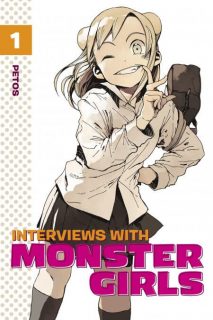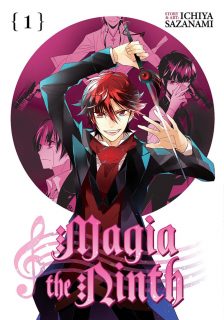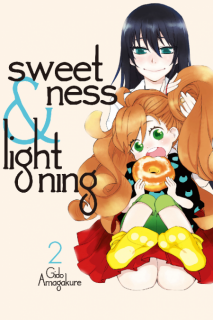My News and Reviews
November may have come and gone, but there’s still time to enter November’s manga giveaway for a chance to win the first volumes of Shuzo Oshimi’s Happiness, Hiroyuki Takei’s Nekogahara: Stray Cat Samurai, Hico Yamanaka’s The Prince in His Dark Days, and Tomo Takeuchi’s Welcome to the Ballroom. The winner will be announced on Wednesday, so get those entries in! Other than the monthly giveaway, last week continued to be rather quiet at Experiments in Manga. Happily though, I was able to make some progress on my feature for Ichigo Takano’s Orange.
In case you’re looking for more giveaways, Manga Test Drive’s annual holiday giveaway is currently underway. (Also, if you’re looking for some great manga reviews, Manga Test Drive is well-worth checking out.) As for other interesting things online: Vertical has posted its novel survey which includes the opportunity to make a license request; Justin at The OASG has compiled a list of Princess Jellyfish‘s chapter title pop culture references; and the final part of The Sparkling World of 1970s Shojo Manga has been posted at The Lobster Dance.
Quick Takes
 Interviews with Monster Girls, Volume 1 by Petos. I’ve come to associate monster girl manga with Seven Seas and so initially I was a little surprised to learn that Interviews with Monster Girls was actually being released by Kodansha Comics. Of course, there’s nothing wrong with another publisher giving a recently but immensely popular niche some attention! Tetsuo Takahashi, a high school biology teacher, has both a personal and professional interest in demi-humans. He has always wanted to meet one but has never had the opportunity until he suddenly and unexpectedly encounters not one but four demi at his school. Three are students–an energetic vampire, a lonely dullahan, and a meek yuki onna–while the fourth is both a succubus and one of the school’s math teachers. One thing that’s different in Interviews with Monster Girls from many of the other monster girl manga that I’ve read is that the demi don’t seem to be a separate species from humans but are instead a sort of spontaneous, rare genetic mutation. So far, Interviews with Monster Girls is fairly innocuous. The story tends to be fairly quiet and even introspective with touches of humor, focusing on the daily lives, troubles, and worries of the young demi women.
Interviews with Monster Girls, Volume 1 by Petos. I’ve come to associate monster girl manga with Seven Seas and so initially I was a little surprised to learn that Interviews with Monster Girls was actually being released by Kodansha Comics. Of course, there’s nothing wrong with another publisher giving a recently but immensely popular niche some attention! Tetsuo Takahashi, a high school biology teacher, has both a personal and professional interest in demi-humans. He has always wanted to meet one but has never had the opportunity until he suddenly and unexpectedly encounters not one but four demi at his school. Three are students–an energetic vampire, a lonely dullahan, and a meek yuki onna–while the fourth is both a succubus and one of the school’s math teachers. One thing that’s different in Interviews with Monster Girls from many of the other monster girl manga that I’ve read is that the demi don’t seem to be a separate species from humans but are instead a sort of spontaneous, rare genetic mutation. So far, Interviews with Monster Girls is fairly innocuous. The story tends to be fairly quiet and even introspective with touches of humor, focusing on the daily lives, troubles, and worries of the young demi women.
 Magia the Ninth, Volume 1 by Ichiya Sazanami. I had previously read and enjoyed Sazanami’s earlier series Black Bard which would have been enough to interest me in Magia the Ninth but when I heard that the series was about magic-wielding, demon-hunting, bishonen composers I knew that I wouldn’t be able to resist it. The manga follows Takeru, a young man whose parents were killed by demons. He wants revenge and so seeks the aid of the magia, a group of people imbued with the souls of classical composers who use musical masterpieces as exorcism tools. Specifically, he tries to convince Beethoven to make him his apprentice. Honestly, at times Magia the Ninth is barely coherent. The worldbuilding is a mess and the story nearly nonexistent. The manga is a spectacle without being spectacular but even so, I absolutely loved the first volume. It’s an absurd but highly entertaining and energizing manga. And due to my classical training, I’m in a position to appreciate Sazanami’s nods to the personal quirks and histories of the original composers. Apparently Magia the Ninth is actually only two volumes long. I don’t know if Sazanami planned it to be that short or if the series was canceled early (which wouldn’t surprise me), but I definitely plan on reading the second half.
Magia the Ninth, Volume 1 by Ichiya Sazanami. I had previously read and enjoyed Sazanami’s earlier series Black Bard which would have been enough to interest me in Magia the Ninth but when I heard that the series was about magic-wielding, demon-hunting, bishonen composers I knew that I wouldn’t be able to resist it. The manga follows Takeru, a young man whose parents were killed by demons. He wants revenge and so seeks the aid of the magia, a group of people imbued with the souls of classical composers who use musical masterpieces as exorcism tools. Specifically, he tries to convince Beethoven to make him his apprentice. Honestly, at times Magia the Ninth is barely coherent. The worldbuilding is a mess and the story nearly nonexistent. The manga is a spectacle without being spectacular but even so, I absolutely loved the first volume. It’s an absurd but highly entertaining and energizing manga. And due to my classical training, I’m in a position to appreciate Sazanami’s nods to the personal quirks and histories of the original composers. Apparently Magia the Ninth is actually only two volumes long. I don’t know if Sazanami planned it to be that short or if the series was canceled early (which wouldn’t surprise me), but I definitely plan on reading the second half.
 Prison School, Omnibus 3-5 (equivalent to Volumes 5-10) by Akira Hiramoto. I’m not sure if Prison School could be any more different than Me and the Devil Blues, currently the only other manga by Hiramoto to have been licensed in English. The only immediate similarity between the two series is Hiramoto’s exceptional artwork. Many people will find Prison School appalling and rightly or at least understandably so, especially if they’re expecting something more akin to Hiramoto’s earlier work. Prison School is blatant in its highly sexualized and fetishized characterizations, story, and illustrations. The fanservice is frequently so extreme as to be grotesque. But it’s all done deliberately–Prison School is so absolutely ridiculous and over-the-top that it’s impossible to take seriously. While it’s not exactly a parody, it is a romantic comedy of sorts. Assuming someone isn’t simply outright offended by the manga, Prison School is legitimately funny and at time even hilarious. It’s definitely not for everyone, but I’ll admit to enjoying the series. These particular omnibuses conclude the first major story arc and begin the second which delves more deeply into the pasts of several characters.
Prison School, Omnibus 3-5 (equivalent to Volumes 5-10) by Akira Hiramoto. I’m not sure if Prison School could be any more different than Me and the Devil Blues, currently the only other manga by Hiramoto to have been licensed in English. The only immediate similarity between the two series is Hiramoto’s exceptional artwork. Many people will find Prison School appalling and rightly or at least understandably so, especially if they’re expecting something more akin to Hiramoto’s earlier work. Prison School is blatant in its highly sexualized and fetishized characterizations, story, and illustrations. The fanservice is frequently so extreme as to be grotesque. But it’s all done deliberately–Prison School is so absolutely ridiculous and over-the-top that it’s impossible to take seriously. While it’s not exactly a parody, it is a romantic comedy of sorts. Assuming someone isn’t simply outright offended by the manga, Prison School is legitimately funny and at time even hilarious. It’s definitely not for everyone, but I’ll admit to enjoying the series. These particular omnibuses conclude the first major story arc and begin the second which delves more deeply into the pasts of several characters.
 Sweetness and Lightning, Volume 2 by Gido Amagakure. I really enjoyed the mix of food and family present in the first volume of Sweetness and Lightning and so was looking forward to reading more of the series. The second volume continues in very much the same vein with perhaps just a little less melancholy. Granted, there are still a few heartwrenching moments, it’s just that there are plenty of heartwarming moments to go along with them. Inuzuka’s skills as a single dad and as a cook continue to slowly grow as the series progresses. One of his most recent stumbling blocks is trying to find a way to incorporate green peppers and other bitter vegetables into meals and have them be acceptable to his young daughter Tsugumi. The father-daughter relationship between Inuzuka and Tsugumi is one of my favorite relationships in Sweetness and Lightning and is one of the main reasons I enjoy the series so much. The dynamic is very sweet in addition to being portrayed very realistically–sometimes there are smiles and sometimes there are tears, sometimes there is laughter and joy and sometime there is yelling and frustration, but most importantly there’s always love. All of the good food doesn’t hurt things, either.
Sweetness and Lightning, Volume 2 by Gido Amagakure. I really enjoyed the mix of food and family present in the first volume of Sweetness and Lightning and so was looking forward to reading more of the series. The second volume continues in very much the same vein with perhaps just a little less melancholy. Granted, there are still a few heartwrenching moments, it’s just that there are plenty of heartwarming moments to go along with them. Inuzuka’s skills as a single dad and as a cook continue to slowly grow as the series progresses. One of his most recent stumbling blocks is trying to find a way to incorporate green peppers and other bitter vegetables into meals and have them be acceptable to his young daughter Tsugumi. The father-daughter relationship between Inuzuka and Tsugumi is one of my favorite relationships in Sweetness and Lightning and is one of the main reasons I enjoy the series so much. The dynamic is very sweet in addition to being portrayed very realistically–sometimes there are smiles and sometimes there are tears, sometimes there is laughter and joy and sometime there is yelling and frustration, but most importantly there’s always love. All of the good food doesn’t hurt things, either.
